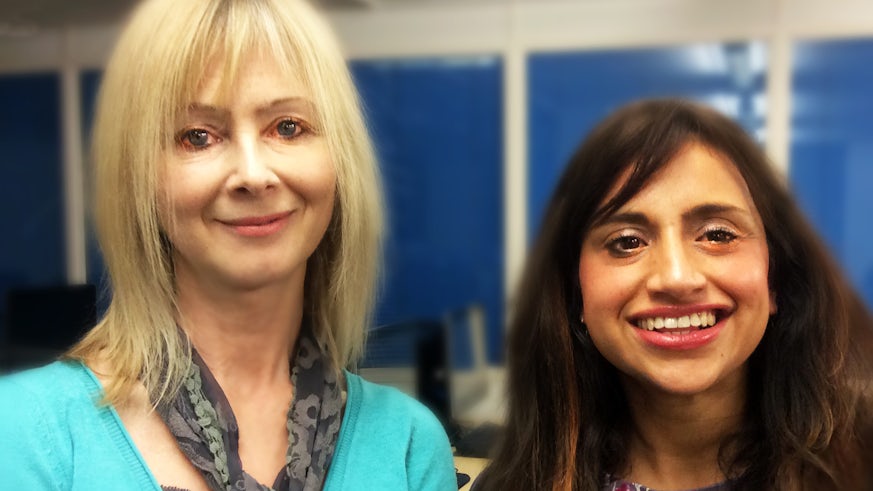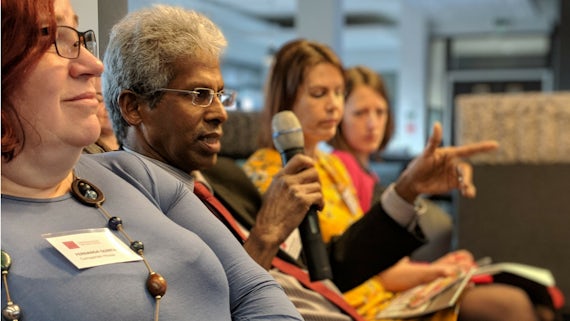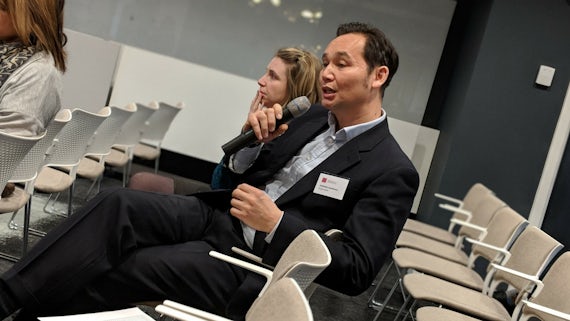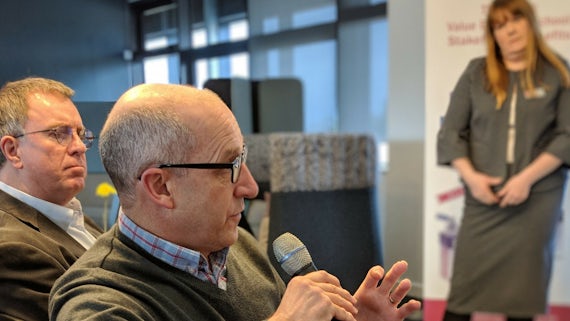Much talk, but how much action?
22 March 2018

Practitioners from the public, private and third sectors have heard that while accounting firms are making progress in addressing the diversity agenda, the outcomes of initiatives are uneven, especially at senior levels, at the latest in Cardiff Business School’s Breakfast Briefing Series.
These findings were taken from a report authored by Carla Edgley MA FCA FHEA and Dr Nina Sharma from Cardiff Business School alongside co-authors, Dr Fiona Anderson-Gough from Warwick Business School and Professor Keith Robson from HEC Paris.
The report, entitled Diversity and the accounting profession, was partly funded by the Institute of Chartered Accountants in England and Wales Charitable Trusts and can be found on their website.
Dr Nina Sharma said: “One of the main reasons we wanted to conduct this research was because we felt that whilst diversity initiatives have been influencing the profession for some time, their impact has yet to be assessed...”
“We feel that progress is being made but the pace of change is slow and uneven, particularly at senior levels.”
Diversity enacted in practice
The team conducted 50 interviews and a UK-wide Survey gathering 230 responses from members of all the accounting professional bodies.
Dr Sharma added: “Currently, we are still having conversations about gender pay gaps and about gender diversity in senior leadership...”
“So in our research we wanted to understand how people are experiencing diversity in their professional lives and how diversity is enacted in practice.”
Five main themes emerged from the interviews and survey data which the research team used to help understand the findings and how they relate to experiences of diversity. These were:
- Training
- Recruitment
- Career progression (Mentoring and Appraisals)
- Networks
- Workplace Adjustments
While there was a recognition that diversity initiatives were part of professional life across these areas, a key finding was that progress towards meaningful change was very slow.
As Dr Sharma recalls: “One of our interviewees said, ‘we hear a lot about diversity but we don’t see much action.’”
An unconscious bias
Carla Edgley commented on key themes that emerged from the project. Barriers remain that are resistant to change and systemic issues limit or slow down diversity progress. She said: “There’s still confusion of what diversity even means. It’s a very malleable term with many different ideas and understandings. And, perhaps pivotal to the report and our findings is a tension we identified between notions of diversity and beliefs about merit...”

“There is an unconscious bias about what merit means hardwired into individuals. So, if merit is defined narrowly, and, perhaps, rewards a group of elite individuals, this can become perpetuated over time. This, we believe, is a key barrier to change.”
Proceedings were brought to a close with an invitation to attendees to participate in a discussion around diversity and merit which saw Dr Sharma and Ms Edgley field questions on humanity, society, training and education, business and the future of diversity in the UK.
The Executive Education Breakfast Briefing series is a network that enables business contacts to find out more about the latest research and key developments from industrial partners.
If you were unable to attend, catch up on our live stream of the event.
And, register now for our next briefing entitled ‘Purpose’ taking place on 26 April 2018.
Share this story
Enabling our business contacts to find out more about latest business research and key developments from industry partners and practitioners.







